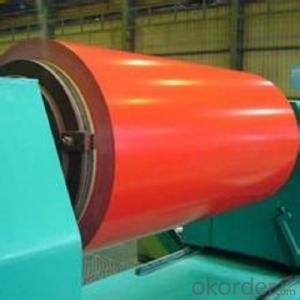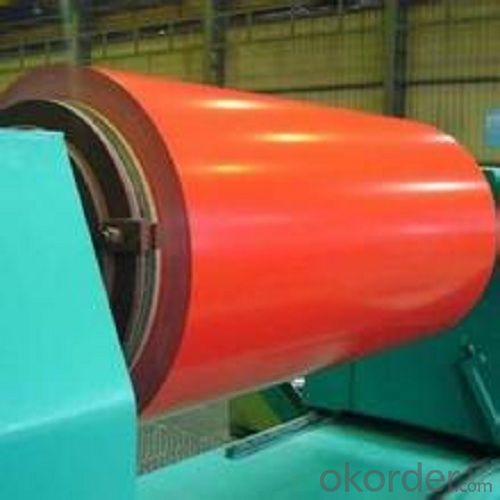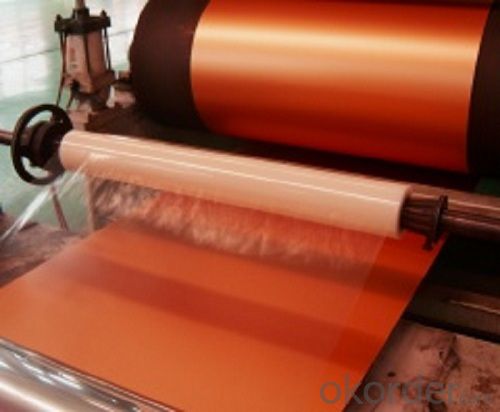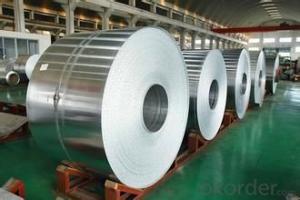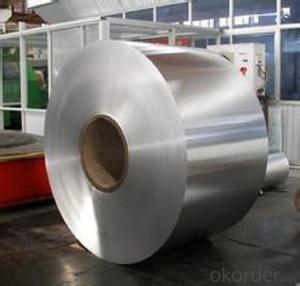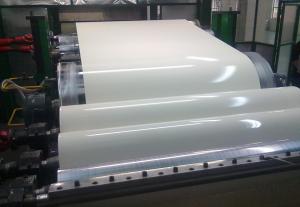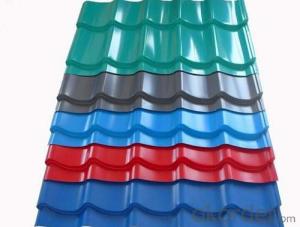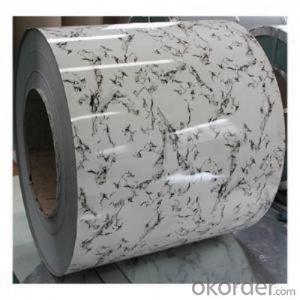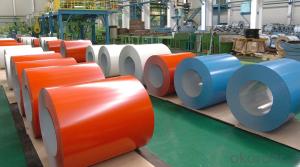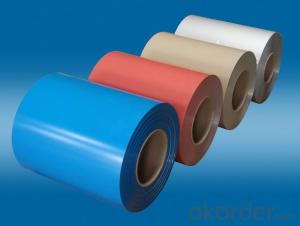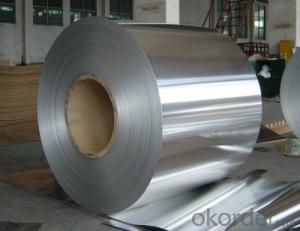1060 Anti-Corrosion Color Coated Aluminum Coil for Roofing and Cladding System
- Loading Port:
- Shanghai
- Payment Terms:
- TT OR LC
- Min Order Qty:
- 2.5
- Supply Capability:
- 5000 m.t./month
OKorder Service Pledge
OKorder Financial Service
You Might Also Like
Specification
1060/1050 Aluminium Coil for Transformer/ Electronic Components
l Product Description
Alloy: | A1100, A1050, A1060,A3003, A3004, A3005, A3105 , A5052, , A5754, A8011 etc. | |
2 | Temper: | H14, H16, H18, H24 etc. |
3 | Thickness: | 0.2mm - 2.0mm |
4 | Width: | 15mm - 1600mm |
5 | Color: | chromic,white,metallic and so on(Customized, choose from RAL color chart or refer to customers' counter sample.) |
6 | Coating: | Polyester(mainly),Fluorocarbon(mainly),polyurethane and epoxy coating ect. |
7 | Coating thickness: | PVDF≥25 micron; PE≥18 micron. |
8 | Surface Quality: | be free from Oil Stain, Dent, Inclusion, Scratches, Stain, Oxide Dicoloration, Breaks, Corrosion, Roll Marks, Dirt Streaks and other defect which will interfere with use. |
9 | Mechanical Property: | Chemical Composite and Mechanical Property are meted with GB/T, ASTM, ENAW Standard. |
10 | Interior diameter: | 105mm or 405mm or 505mm |
11 | Coating hardness: | (pencil hardness) more than 2H |
12 | Impact resistance: | no cracking and peeling(≥50kg/cm) |
13 | Flexibility(T-bend) : | ≤ 2T |
14 | MEK resistance: | more than 100 |
15 | Packaging Detail: | standard export packing in carton and wooden pallet |
16 | Payment Detail: | 30% deposit by T/T in advance,70% balance should be paid upon BL copy |
18 | Application: | roofs, facade cladding, ceilings, aluminum curtains, composite panels, pipe wrap, advertisement plates, instrument panels, and other uses. |
l Packaging & Delivery
Packaging detail: pallets, waterproof paper and plastic coverage or as customer's requirements
Delivery detail: within 30 days after we get your 30% deposit or L/C
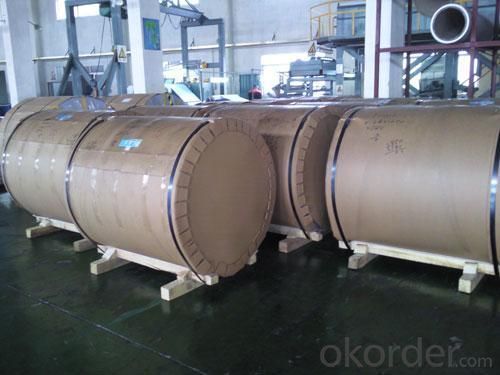
l Company Profile
CNBM International Corporation, China National Building Materials (Group) Corporation, is one of the largest companies in China building material & equipment industry, with 42,800 employees and sales in 2005 of US Dollar 4.395 billion. In 2006, China National Building Material Company Limited was listed on Hong Kong Stock Market with the stock code as 3323. |
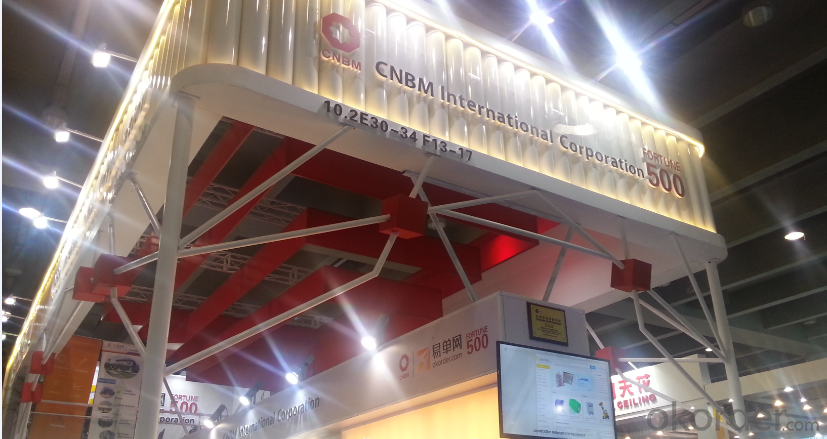
l Product Images
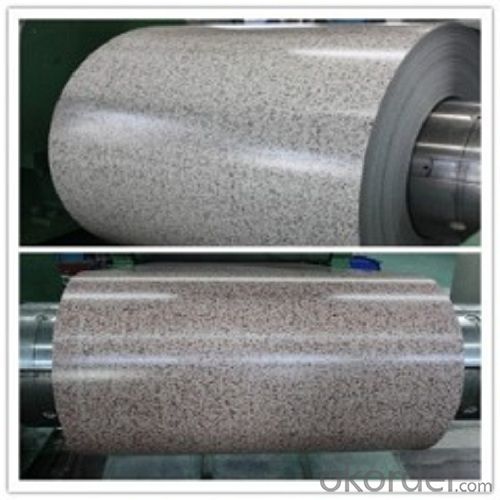
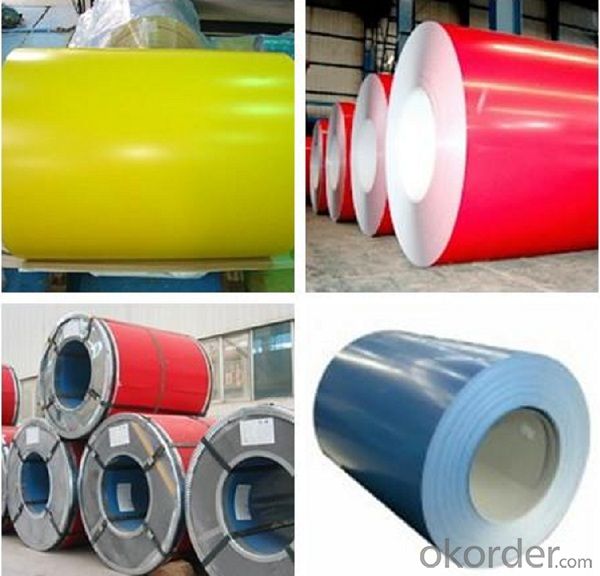
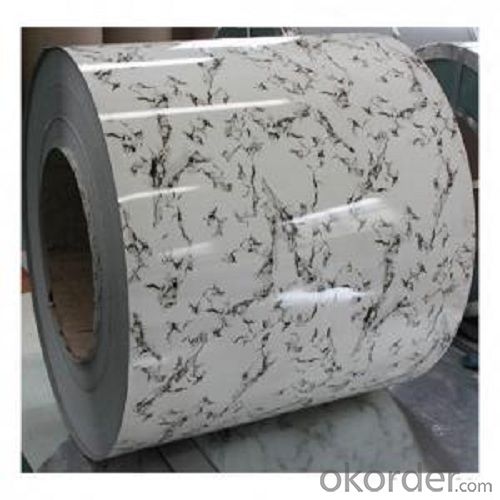
l Certificates
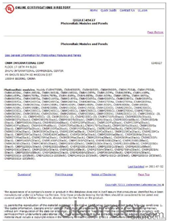
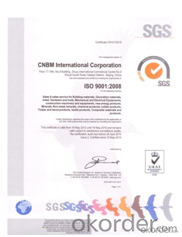
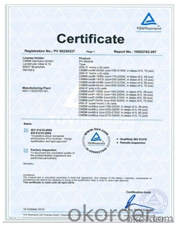
l FAQ
Q: Do you provide free samples?
A: Yes, free samples will be sent to you on freight at destination.
Q: Can I get your latest products catalogue?
A: Yes, it will be sent to you in no time.
Q: What is the MOQ?
A: 2.5 tons
Q: What are your payment terms?
A: We accept L/C, T/T
- Q: This question seeks to understand the environmental impact of discarded aluminum coils.
- <p>Discarded aluminum coils can have significant environmental impacts. They contribute to landfill waste and can potentially leach harmful substances into the soil and water if not properly managed. Aluminum production is energy-intensive, so recycling discarded coils reduces the demand for raw materials and conserves energy. However, if left in the environment, aluminum can also contribute to pollution and disrupt ecosystems. Proper recycling and disposal methods are crucial to mitigate these effects and promote sustainability.</p>
- Q: Related technical standards of aluminium coil
- GB/T 1196-2002 remelting aluminium ingotTechnical specification for dustproof and anti gas of GB/T 17397-1998 aluminium electrolysis productionFixed capacitors for use in GB/T 17208-1998 electronic equipment - Part eighteenth: Blank detail specification - non solid electrolyte sheet type aluminium fixed capacitor level E
- Q: This question asks for the method to cut an aluminum coil into smaller sections.
- <p>To cut an aluminum coil into smaller pieces, you can use a metal cutting band saw, which is designed for cutting metal materials. Ensure the blade is sharp and the speed is appropriate for aluminum. Secure the coil in a vice or a cutting table to prevent movement during cutting. Wear safety goggles and gloves. Turn on the saw and slowly feed the coil through the blade, applying steady pressure. After cutting, smooth any rough edges with a file or sandpaper. Always follow safety precautions and manufacturer's instructions for your specific cutting tool.</p>
- Q: What are the typical mechanical properties of aluminum coils?
- The mechanical properties of aluminum coils can vary depending on the specific alloy and temper of the material. However, some typical mechanical properties of aluminum coils include: 1. Tensile strength: Aluminum coils generally have a high tensile strength, which refers to the maximum amount of tensile stress a material can withstand before it breaks. This property is important for applications that require the material to withstand heavy loads or stress. 2. Yield strength: Yield strength is the amount of stress a material can withstand without permanently deforming. Aluminum coils typically have a relatively high yield strength, allowing them to maintain their shape and structural integrity under normal operating conditions. 3. Elongation: Elongation refers to the amount a material can stretch or deform before it fractures. Aluminum coils typically have a relatively high elongation, making them suitable for applications that require the material to be formed or bent without breaking. 4. Hardness: The hardness of aluminum coils can vary depending on the alloy and temper. Aluminum alloys can be heat-treated to increase their hardness, making them more suitable for applications that require wear resistance or need to withstand harsh environments. 5. Fatigue strength: Fatigue strength is the ability of a material to resist the formation and growth of cracks under cyclic loading conditions. Aluminum coils generally exhibit good fatigue strength, making them suitable for applications subjected to repeated or fluctuating loads. It is important to note that these properties can vary depending on the specific alloy, temper, and processing conditions of the aluminum coils. Therefore, it is recommended to consult the material specifications or contact the manufacturer for more accurate and detailed information on the mechanical properties of specific aluminum coils.
- Q: Are aluminum coils easy to install?
- Yes, aluminum coils are generally easy to install. They are lightweight and flexible, making them convenient to handle and position during installation. Additionally, they can be easily cut and shaped to fit the desired space, making the installation process relatively straightforward for experienced professionals or DIY enthusiasts.
- Q: Can aluminum coils be used in the production of transportation vehicles?
- Indeed, the utilization of aluminum coils is feasible in the manufacturing process of transportation vehicles. Due to its lightweight nature and resistance to corrosion, aluminum has garnered significant favor within the automotive sector. The superior strength-to-weight ratio it possesses aids in enhancing fuel efficiency, decreasing emissions, and elevating the overall performance of vehicles. The versatility of aluminum coils allows for their application in the production of diverse components including body panels, frames, chassis, and suspension parts. Furthermore, the environmentally conscious attribute of aluminum lies in its recyclability, thereby bolstering the sustainability of the transportation industry.
- Q: How are aluminum coils different from other types of metal coils?
- Aluminum coils differ from other types of metal coils in several ways. Firstly, aluminum is a lightweight metal, making aluminum coils much lighter compared to coils made from other metals such as steel or copper. This lightweight property of aluminum makes it a popular choice for various industries where weight is a critical factor, such as aerospace and automotive industries. Secondly, aluminum coils have excellent corrosion resistance. Unlike other metals, aluminum forms a protective oxide layer on its surface when exposed to air, preventing further corrosion. This resistance to corrosion makes aluminum coils suitable for applications in humid and corrosive environments, such as marine or coastal areas. Additionally, aluminum coils possess high thermal conductivity. This means that aluminum can efficiently conduct heat, making it an ideal material for heat transfer applications like HVAC systems, refrigeration units, and radiators. The high thermal conductivity of aluminum coils allows for more efficient cooling or heating processes. Furthermore, aluminum is highly malleable and ductile, which means it can be easily shaped and formed without losing its structural integrity. This malleability makes aluminum coils flexible and versatile, allowing them to be manufactured into various shapes and sizes to meet specific industry requirements. Lastly, aluminum is a highly sustainable and recyclable material. It can be recycled repeatedly without losing its quality or performance, making aluminum coils an environmentally friendly choice. This recyclability factor contributes to reducing the environmental impact and promoting a circular economy. In summary, aluminum coils stand out from other metal coils due to their lightweight, corrosion resistance, high thermal conductivity, malleability, and recyclability. These unique properties make aluminum coils a preferred choice for a wide range of applications across different industries.
- Q: How do aluminum coils perform in corrosive environments?
- Aluminum coils perform exceptionally well in corrosive environments due to their inherent properties and protective coatings. Aluminum has a natural oxide layer that forms on its surface when exposed to air, creating a protective barrier against corrosion. This oxide layer is highly resistant to many corrosive agents, such as saltwater, acids, and atmospheric pollutants. Additionally, aluminum coils can be further protected with various coatings and treatments to enhance their resistance to corrosion. These coatings can include organic coatings, such as paint or lacquer, or inorganic coatings like anodizing or chemical conversion coatings. The combination of aluminum's natural oxide layer and additional protective coatings makes aluminum coils highly durable and reliable in corrosive environments. This resistance to corrosion is particularly beneficial in industries such as marine, chemical processing, and coastal applications, where exposure to saltwater or aggressive chemicals is common. Moreover, aluminum coils are lightweight, which adds to their versatility and ease of installation, making them suitable for a wide range of corrosive environments. This lightweight property also contributes to reducing transportation costs and energy consumption during installation. In summary, aluminum coils are well-suited for corrosive environments due to their natural corrosion resistance and the availability of protective coatings. Their durability, lightweight nature, and resistance to corrosion make them an optimal choice for various industries and applications, where longevity and performance are crucial factors.
- Q: What is the difference between aluminum plate and aluminum coil?
- A sheet is flat, one by one for storage, one for coil material, one roll for storage, but aluminum coil can be leveled by machine, that is aluminum plate.
- Q: What are the common quality control measures for aluminum coil manufacturing?
- To ensure the production of high-quality aluminum coils, various quality control measures are implemented throughout the manufacturing process. These measures include: 1. Thoroughly inspecting the raw materials, specifically the aluminum alloy used for the coils, to identify any impurities or defects that could impact the final product. 2. Conducting dimensional inspections at different stages of the manufacturing process to ensure that the aluminum coils meet the required specifications in terms of thickness, width, length, and diameter. 3. Inspecting the surface of the aluminum coils for visual defects like scratches, dents, or marks, either through visual examination or specialized equipment such as cameras or scanners. 4. Testing the mechanical properties of the coils, including tensile strength, yield strength, elongation, and hardness, to ensure that they meet the necessary strength and performance requirements. 5. Regularly analyzing the chemical composition of the aluminum alloys used to manufacture the coils to ensure compliance with specific standards and identify any deviations that may affect the quality of the final product. 6. Inspecting the coating applied to the aluminum coils, if present, to ensure uniformity, adhesion, and thickness. This is important for proper corrosion resistance and an appealing aesthetic appearance. 7. Conducting packaging inspections before shipment to ensure that the coils are properly packed, labeled, and protected during transportation, while also checking for any damage or contamination that may have occurred during the packaging process. By implementing these quality control measures, any defects or deviations in the manufacturing process can be identified and rectified, thereby ensuring that the aluminum coils meet the required standards and customer expectations.
Send your message to us
1060 Anti-Corrosion Color Coated Aluminum Coil for Roofing and Cladding System
- Loading Port:
- Shanghai
- Payment Terms:
- TT OR LC
- Min Order Qty:
- 2.5
- Supply Capability:
- 5000 m.t./month
OKorder Service Pledge
OKorder Financial Service
Similar products
Hot products
Hot Searches
Related keywords
